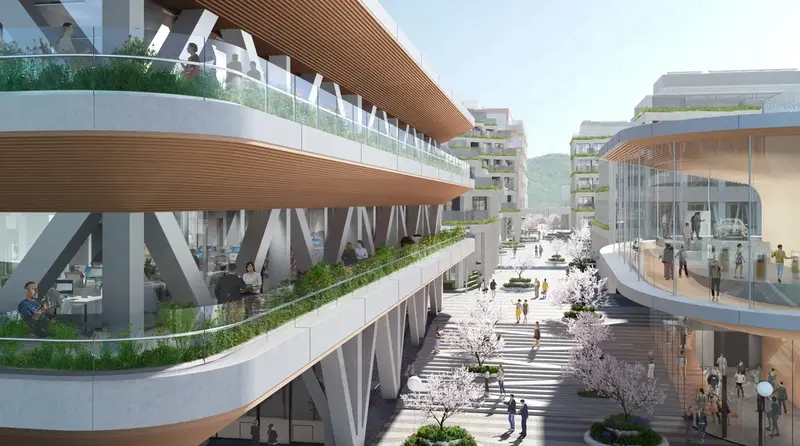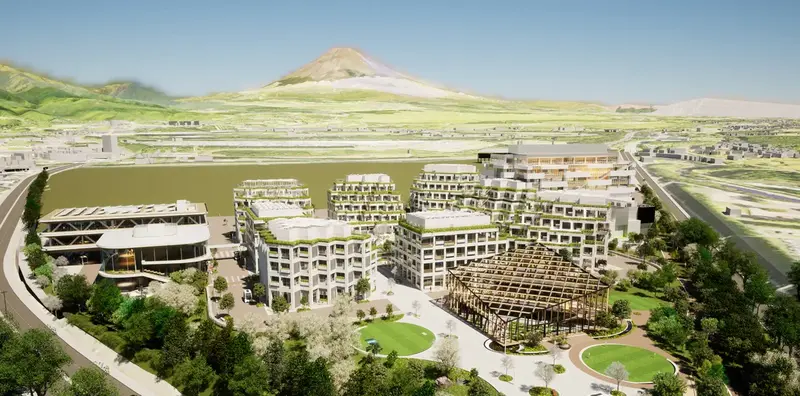Woven City, or the Woven City, has been under construction since 2021 in Shizuoka Prefecture, near Mount Fuji, on the site of former factory buildings. Toyota This summer, as announced by the corporation, the work is coming to an end. The smart city, like something out of a sci-fi movie, will become a “living laboratory” for testing the latest technologies.
Autonomous (i.e., self-driving) transport, renewable energy, absence harmful emissions, systems artificial intelligence and works will become a common occurrence here. The ambitious project by the automaker Toyota aims to explore how urban residents can coexist with these and other futuristic amenities.
The smart city was designed by renowned Danish architect Bjarke Ingels. It is worth noting that he is the author of the main Google office project in California, as well as the new building of the World Trade Center in New York.

What else can the Fabric City boast about?
By 2025, developers will carry out what can be described as a soft launch of the Woven City, accompanied by various demonstration trials. Among them are experiments using next-generation remote communication technologies and smart logistics through smartphone applications linked to delivery robots.
In the houses of city dwellers, primarily made of wood, robotics and sensor-based artificial intelligence will be introduced, the publication reported. IFLScience These innovations will be used for everyday tasks, such as automatic restocking of the refrigerator and taking out the trash. Also,AIwill monitor the health of residents.
Initially, the city, which will cover an area of about 70 hectares, will house 360 people – mostly elderly individuals and families with children. However, the population is expected to gradually increase to at least 2,000 people. Among them will be company employees (primarily technicians and researchers) who will observe the functioning of AI systems and other technologies in a real-world environment.

“Building a fully-fledged city from scratch, even on such a small scale as this, is a unique opportunity to develop the technologies of the future, including a digital operating system for infrastructure,” noted Akio Toyoda, chairman of Toyota Motor Corporation.
By the way, Akio Toyoda is the great-grandson of Sakichi Toyoda, the so-called “king of Japanese inventors,” who founded Toyota Industries in 1926 to produce automatic looms. And although the company has long since expanded beyond its original purpose, the name “Fabric Town” seems to be a reminder of those unforgettable times.
